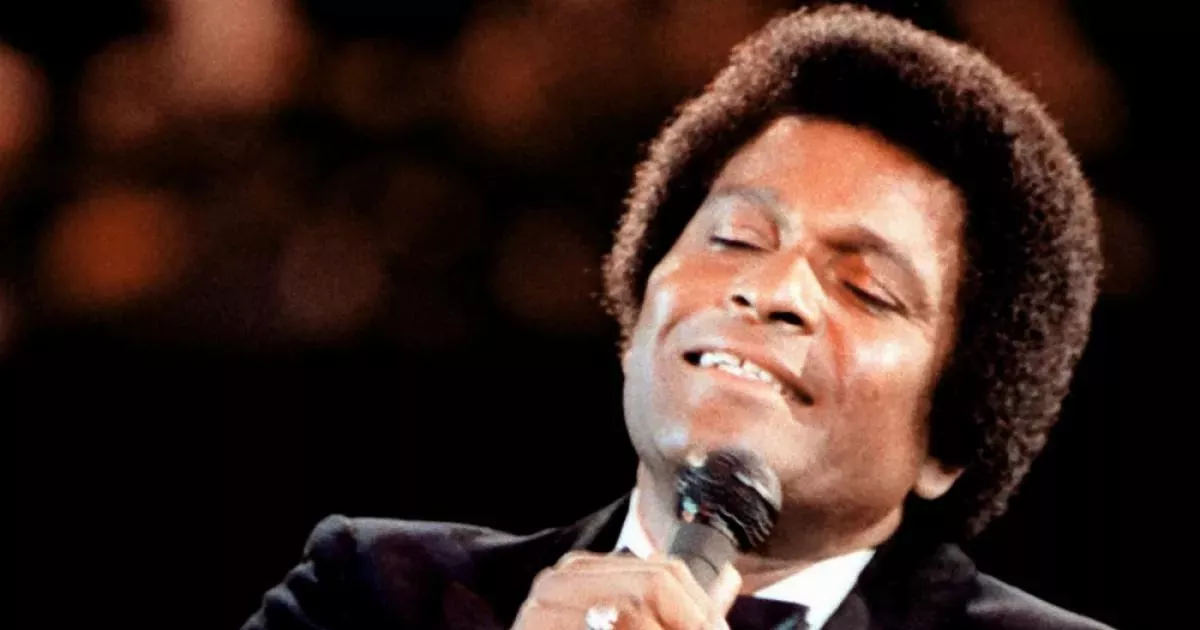Charley Frank Pride was a multifaceted individual with careers spanning both entertainment and sports. He was best known as an American singer, guitarist, and professional baseball player. His contributions to country music left an indelible mark on the industry, and his athletic pursuits showcased his diverse talents.
March 18, 1934: Birth of Charley Pride
Charley Frank Pride was born on March 18, 1934. He would go on to become an acclaimed American singer, guitarist, and professional baseball player.
1952: Pitching for Memphis Red Sox
In 1952, Charley Pride pitched for the Memphis Red Sox of the Negro American League, marking the beginning of his professional baseball career.
1953: Signing with Boise Yankees
In 1953, Charley Pride signed a contract with the Boise Yankees, the Class C farm team of the New York Yankees. An injury that year, however, affected his pitching ability.
1956: Marriage to Rozene
In 1956, Charley Pride married his wife Rozene while on Christmas leave from Army basic training, marking the beginning of a long and enduring relationship.
1956: Drafted into the United States Army
In 1956, Charley Pride was drafted into the United States Army, where he was stationed at Fort Carson, Colorado, and played on the Fort's baseball team that won the All Army Sports Championship.
1958: Recording at Sun Studio
In 1958, Charley Pride recorded some songs at Sun Studio in Memphis, marking an early step in his transition from a baseball career to a music career.
1958: Discharged from the Army and Rejoining Baseball
In 1958, after being discharged from the Army, Charley Pride rejoined the Memphis Red Sox and continued his attempts to return to professional baseball despite an injury to his throwing arm.
1960: Playing for Missoula Timberjacks
In 1960, Charley Pride played three games for the Missoula Timberjacks of the Pioneer League. Despite his efforts, he was not picked up by the team and moved on to other opportunities.
1960: Working in Construction and Playing for East Helena Smelterites
In 1960, after being laid off by the Missoula Timberjacks, Charley Pride moved to Helena, Montana, to work in construction and pitch for the East Helena Smelterites. He also worked at the local Asarco lead smelter.
1961: Tryout with California Angels
In 1961, Charley Pride had a tryout with the California Angels but was not picked up by the team.
1962: Tryout with New York Mets
In 1962, Charley Pride had a tryout with the New York Mets organization but was not selected, marking another challenge in his baseball career.
1965: Signing with RCA Records
In 1965, Charley Pride signed with RCA Records, a significant milestone in his music career. This partnership would lead to his first single release and eventual fame.
1966: Start of Charley Pride's Recording Career
In 1966, Charley Pride began his recording career, achieving significant success as a country music artist. This year marked the beginning of his prolific recording period which lasted until 1987.
1966: Release of First RCA Single
In 1966, Charley Pride released his first RCA single, "The Snakes Crawl at Night", marking the start of his successful recording career. The single, however, did not chart.
1966: First Large Show in Detroit
In the late summer of 1966, Charley Pride was booked for his first large show at Detroit's Olympia Stadium. This event marked a pivotal moment as many fans discovered he was Black only when he walked onto the stage.
February 25, 1967: Success of 'Just Between You and Me'
On February 25, 1967, Charley Pride's song 'Just Between You and Me' reached number nine on the Hot Country Songs chart, marking his first significant success in the country music industry.
1967: Moving to Great Falls, Montana
In 1967, Charley Pride and his family moved to Great Falls, Montana, to be closer to an airport as his music career began to take off. They encountered minor racism but generally spoke positively of their time in Montana.
1967: First Black Performer at Grand Ole Opry
In 1967, Charley Pride became the first Black performer to appear at the Grand Ole Opry since DeFord Bailey in 1941, marking a significant milestone in his career.
1969: Gold Disc for Compilation Album
In 1969, Charley Pride's compilation album, The Best of Charley Pride, sold over one million copies and was awarded a gold disc, further solidifying his success.
1971: Multiple Number One Singles
Between 1969 and 1971, Charley Pride had eight singles reach number one on the US Country Hit Parade, reflecting his dominance in the country music scene.
1971: Performance of 'All His Children'
In 1971, Charley Pride performed 'All His Children', a song featured in the film Sometimes a Great Notion, which received two Oscar nominations in 1972.
1971: Release of 'Kiss an Angel Good Mornin''
In 1971, Charley Pride released 'Kiss an Angel Good Mornin'', which became his biggest hit and a million-selling crossover single.
1971: Entertainer of the Year Award
In 1971, Charley Pride won the Entertainer of the Year award at the Country Music Association Awards and released his first gospel album Did You Think to Pray.
1972: CMA Awards for Entertainer and Male Vocalist
In 1971 and 1972, Charley Pride won the Country Music Association's entertainer of the year award and its top male vocalist award, respectively.
1972: Grammy Award for Best Country Vocal Performance
In 1972, Charley Pride was awarded a Grammy for Best Country Vocal Performance, Male, cementing his status as a leading figure in country music.
1972: Oscar Nomination for 'All His Children'
In 1972, the song 'All His Children', performed by Charley Pride for the film Sometimes a Great Notion, received an Oscar nomination.
1972: Continued Success of 'Kiss an Angel Good Mornin''
In early 1972, 'Kiss an Angel Good Mornin'' continued to dominate the charts, solidifying Charley Pride's status as a crossover artist.
1975: UK Tour Amidst the Troubles
In 1975, Charley Pride's agent sold a 40-date tour package to a UK booking agent, leading to a historic concert in Belfast during the Troubles.
November 1976: Concert in Belfast
In November 1976, Charley Pride played a concert at Belfast's Ritz Cinema during the Troubles, becoming a symbol of unity and breaking the effective touring concert ban.
1979: Birth of Extramarital Son
In 1979, Charley Pride's extramarital affair led to the birth of his son, Tyler, marking a complex chapter in his personal life.
1980: National Anthem at 1980 World Series
In 1980, Charley Pride performed the national anthem before game six of the World Series, showcasing his patriotism and musical talent.
1981: Mention in Christgau's Record Guide
In 1981, Charley Pride was mentioned in Christgau's Record Guide: Rock Albums of the Seventies, highlighting his influence and recognition in the music industry.
1987: End of Peak Recording Career
By 1987, Charley Pride concluded the peak years of his recording career. During this period, he had 52 top-10 hits on the Billboard Hot Country Songs chart, with 30 reaching number one.
1990: Paternity Suit
In 1990, Charley Pride was sued for child support by the mother of his extramarital son, Tyler, leading to a contentious legal battle.
1992: Comment on Racial Identity
In 1992, Charley Pride reflected on his evolving racial identity labels during an interview, noting the changes from being called the 'first colored country singer' to 'first African-American country singer'.
1992: DNA Test and Court Order
In 1992, a DNA test confirmed Charley Pride as the father of Tyler, resulting in a court order for child support and a name change for the boy.
May 1, 1993: Membership at Grand Ole Opry
On May 1, 1993, Charley Pride became a member of the Grand Ole Opry, a significant honor in country music.
1994: Publication of Autobiography
In 1994, Charley Pride published his autobiography 'Pride: The Charley Pride Story', discussing his childhood, career, and battles with racism and depression.
1997: Tumor Removal Surgery
In 1997, Charley Pride had a tumor removed from his right vocal cord at the University of Arkansas for Medical Sciences, a significant health event.
2000: Induction into the Country Music Hall of Fame
In 2000, Charley Pride was inducted into the Country Music Hall of Fame, recognizing his significant contributions to the country music genre.
June 5, 2008: Drafted by Texas Rangers
On June 5, 2008, Charley Pride, along with 28 other living former Negro league players, was honored by being "drafted" by Major League Baseball teams. Pride was picked by the Texas Rangers, acknowledging his historical contributions to the sport.
February 2009: Performance at Arkansas Senate
In February 2009, Charley Pride returned for a routine checkup at the University of Arkansas for Medical Sciences and surprised the Arkansas Senate with an unplanned performance of five songs.
2010: National Anthem at 2010 World Series
In 2010, Charley Pride performed the national anthem at game five of the World Series, accompanied by the Del Rio High School JROTC Color Guard.
2014: Interview about Early Career
In a 2014 interview, Charley Pride reflected on his early career, discussing the challenges and experiences he faced while working at the smelter and pursuing music.
2016: Performance on 'Forever Country'
In 2016, Charley Pride was selected as one of 30 artists to perform on 'Forever Country', a mash-up track celebrating 50 years of the Country Music Association Awards.
July 7, 2017: Release of 'Music in My Heart'
On July 7, 2017, Charley Pride released 'Music in My Heart', his first album in six years, marking a notable return to music.
2018: 25th Anniversary at Grand Ole Opry
In 2018, Charley Pride celebrated his 25th anniversary as a member of the Grand Ole Opry with performances on May 4 and 5.
December 12, 2020: Death of Charley Pride
Charley Frank Pride passed away on December 12, 2020, marking the end of an influential career in music and sports.
2020: Willie Nelson Lifetime Achievement Award
In 2020, Charley Pride was announced as the recipient of the Willie Nelson Lifetime Achievement Award at the 54th Country Music Association Awards, recognizing his significant contributions to country music.
May 2021: Tyler Pride Contests Charley Pride's Will
In May 2021, Tyler Pride contested the will of his father, Charley Pride, claiming he was deliberately excluded to safeguard a "Pride family secret" and to preserve Charley's public image and legacy. Rozene Pride, Charley's wife and the executor of his will, acknowledged Tyler's paternity but argued that he had received sufficient financial support and recognition during Charley's lifetime. She characterized the lawsuit as financially motivated.
September 2022: Settlement Reached in Tyler Pride Will Contest
In September 2022, Tyler Pride announced that a settlement had been reached in his lawsuit challenging Charley Pride's will. The terms of the settlement were not disclosed.
Mentioned in this timeline
California is a U S state on the Pacific Coast...
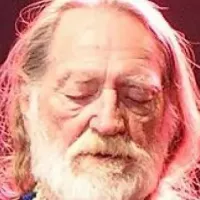
Willie Nelson is a highly influential American singer guitarist songwriter...

Christmas is an annual festival celebrated on December th commemorating...
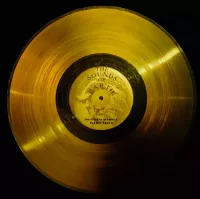
Music is a cultural universal involving the arrangement of sound...
Colorado a Mountain and Southwestern U S state is the...

Detroit Michigan's most populous city sits on the Detroit River...
Trending

47 minutes ago Priyanka Chopra Jonas stars in 'The Bluff,' a gritty pirate action movie.

48 minutes ago Lupita Nyong'o Shares Fibroid Struggle, Advocates for Women's Health in New Campaign
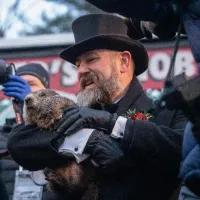
3 hours ago Souvenir Shop Manager Reflects on Final Groundhog Day with Punxsutawney Phil
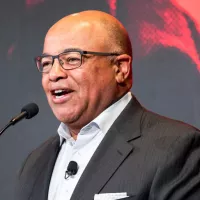
3 hours ago Mike Tirico's Inspiring Olympic Sign-Off: A Look at His Legacy in Sports Broadcasting.

3 hours ago Benny Blanco's Dirty Feet Video Sparks Internet Outrage and Divorce Suggestions for Selena Gomez.

3 hours ago Rock & Roll Hall of Fame Announces 2026 Nominees: Mariah, P!NK, Wu-Tang Clan Lead
Popular

Jesse Jackson is an American civil rights activist politician and...

Susan Rice is an American diplomat and public official prominent...

Barack Obama the th U S President - was the...

Michael Joseph Jackson the King of Pop was a highly...

XXXTentacion born Jahseh Dwayne Ricardo Onfroy was a controversial yet...

Bernie Sanders is a prominent American politician currently serving as...
